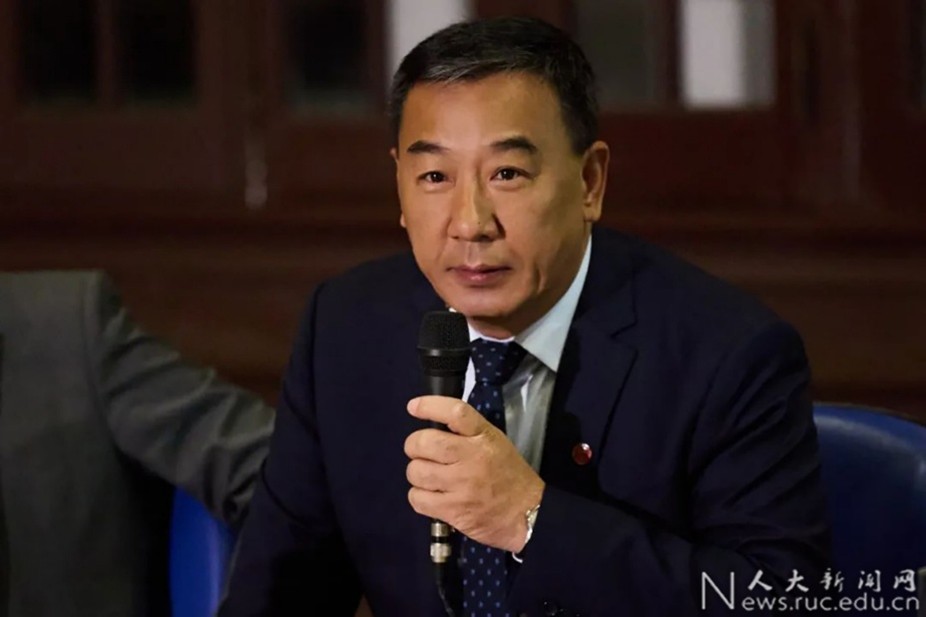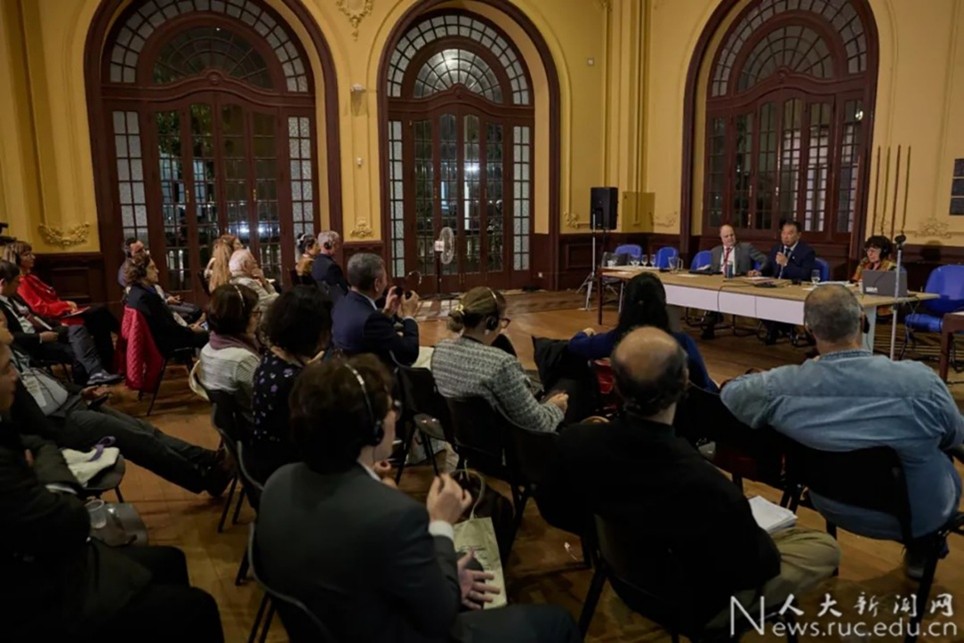
Our school hosted the 3rd China-Latin America International Conference on Green Future and Civilizational Mutual Learning to jointly explore new opportunities for green development and deepen China-Latin America cultural exchange and cooperation
The Third "China-Latin America International Conference on Green Future and Civilizational Dialogue" was successfully held in Rio de Janeiro, Brazil, on July 4, 2025, on the occasion of the upcoming 17th meeting of BRICS leaders in the same city. Co-organized by State Council Information Office of China, Brazil’s Federal University of Rio de Janeiro, Federal University of Minas Gerais, Renmin University of China, and the United Nations Environment Programme , the event was hosted by Renmin University’s School of Agricultural Economics and Rural Development and The Academy of Xi Jinping Thought on Socialism with Chinese Characteristics for a New Era.The conference, themed "Green Future and Shared Civilization: New Opportunities for China-Latin America Cooperation," brought together nearly 100 experts, scholars, government officials, and representatives from international organizations across China, Brazil, Argentina, Costa Rica, Peru, and other countries. Participants engaged in discussions on collaborative pathways between China and Latin America in areas such as ecological civilization, green development, and energy transition construction.Zhang Donggang, Secretary of the Communist Party Committee of Renmin University of China, attended the event and delivered a speech.

Zhang Donggang emphasized that China,Latin American and Caribbean countries,as vital members of the Global South, share a common aspiration to modernization, uphold principles of fairness and justice, and jointly shoulder ecological responsibilities, becoming steadfast participants, proactive practitioners, collaborative partners, and significant contributors in global ecological governance. In recent years, through the Belt and Road Initiative and the China-CELAC Forum mechanism, bilateral cooperation has deepened substantially, generating strong South-South momentum for green growth. As an institution dedicated to serving national strategies and facilitating civilizational exchanges, Renmin University of China has been actively developing ecological civilization research frameworks, enhancing structured scientific research, building international governance platforms, releasing the report "Homo Sapiens 2050: Homo Sapiens and Comprehensive Social Development", providing valuable insights for global sustainable development.Taking this seminar as an opportunity, Renmin University of China is willing to work with all parties to enhance academic exchanges, build consensus on development, and facilitate transformative growth, to contribute China-Latin America wisdom in promoting the modernization of a world where humanity and nature coexist in harmony, and diverse civilizations flourish together.

Scholars and experts from various countries engaged in robust discussions centered around four key themes: "Sustainable Development and Ecological Civilization Policies and Governance," "Green Economy and Energy Transition," "China-Latin America Agricultural Trade and Forest Conservation in the Context of Climate Change," and "China-Latin America Green Future and Civilizational Dialogue." The participants conducted lively exchanges on crucial areas of bilateral cooperation, including addressing climate change, promoting biodiversity-friendly agricultural trade, advancing energy transition, and facilitating mutual learning among civilizations.
The conference invited and featured presentations from distinguished scholars and experts across various fields,including: Professor Aspasia Camargo, former Brazilian Minister of Environment; Federal University of Rio de Janeiro professors Roberto Schaeffer, André F.P. Lucene, and Leonardo Burlamaqui; Dr. Gizelle Cristina Bedendo, Director of Technology Extension at the Brazilian Agricultural Research Corporation; Professor Raoni Rajão of the Federal University of Minas Gerais, member of the Brazilian Academy of Sciences; Dr. Jay Amstel from United Nations Environment Programme; Professor Monica Gabay from Argentina's environmental authorities and National University of San Martín; Professor Qin Xuan, Dean of The Academy of Xi Jinping Thought on Socialism with Chinese Characteristics for a New Era at Renmin University of China, along with Vice Dean Bi Mingyang and Director Zeng Bingjian of Domestic Cooperation Office; Professors Liu Jinlong and Associate Professor Wang Weiye from the School of Agricultural Economics and Rural Development; and Mai Qiulin, Chinese Director of Confucius Institute at University of Costa Rica.
Taking this seminar as an opportunity, the School of Agricultural Economics and Rural Development at Renmin University of China will further advance its "organized research" model. The School is committed to fostering a collaborative, open, and innovative academic culture while deepening global governance cooperation,to contribute wisdom and strength in serving the national strategic needs and socio-economic development.

